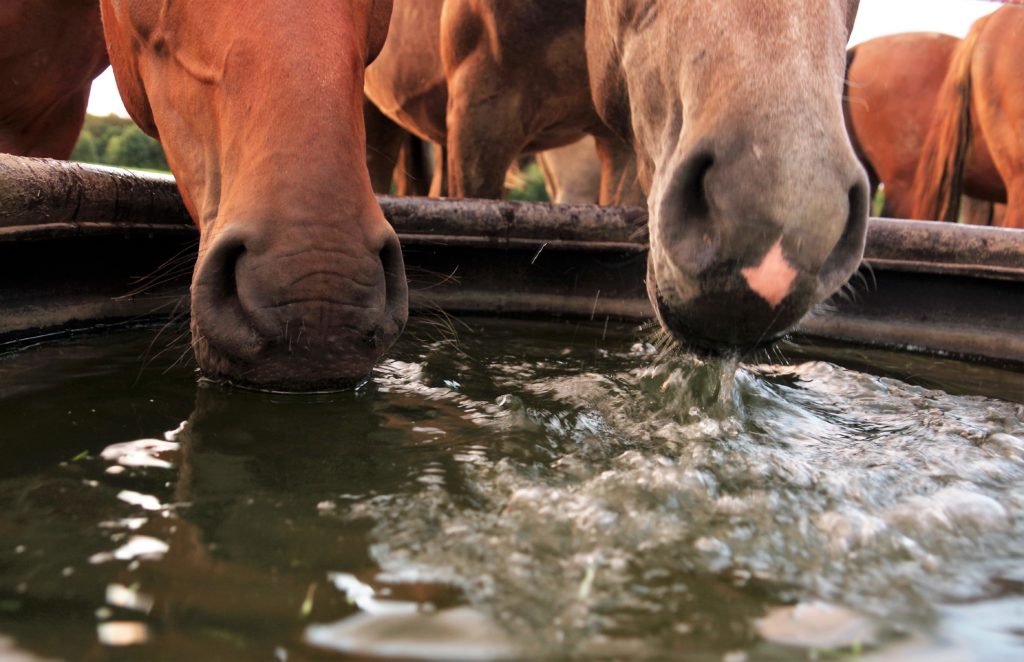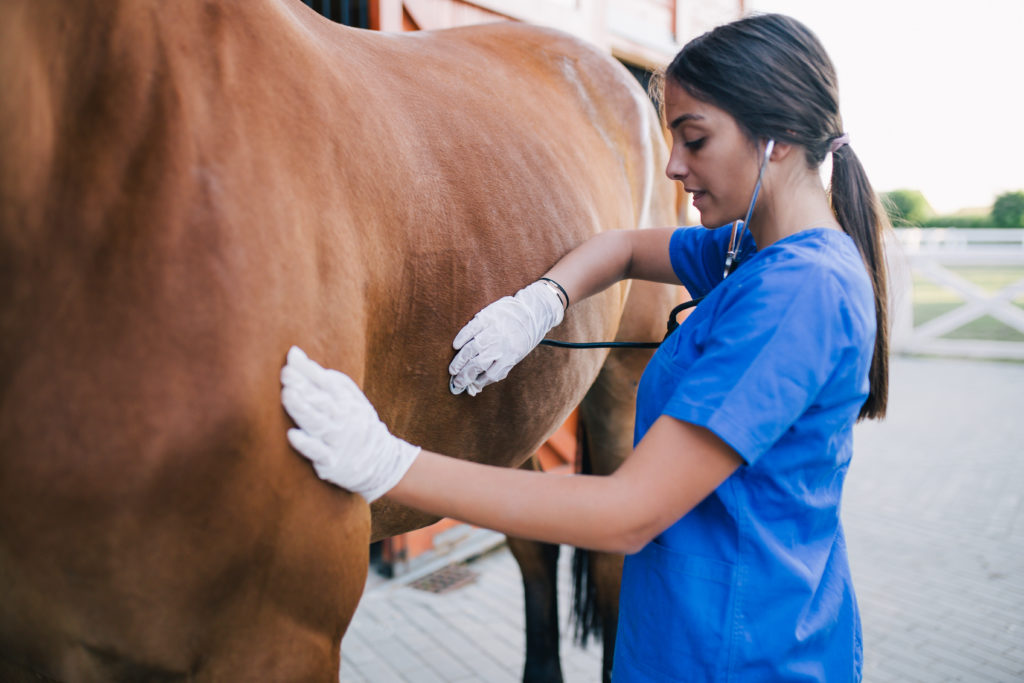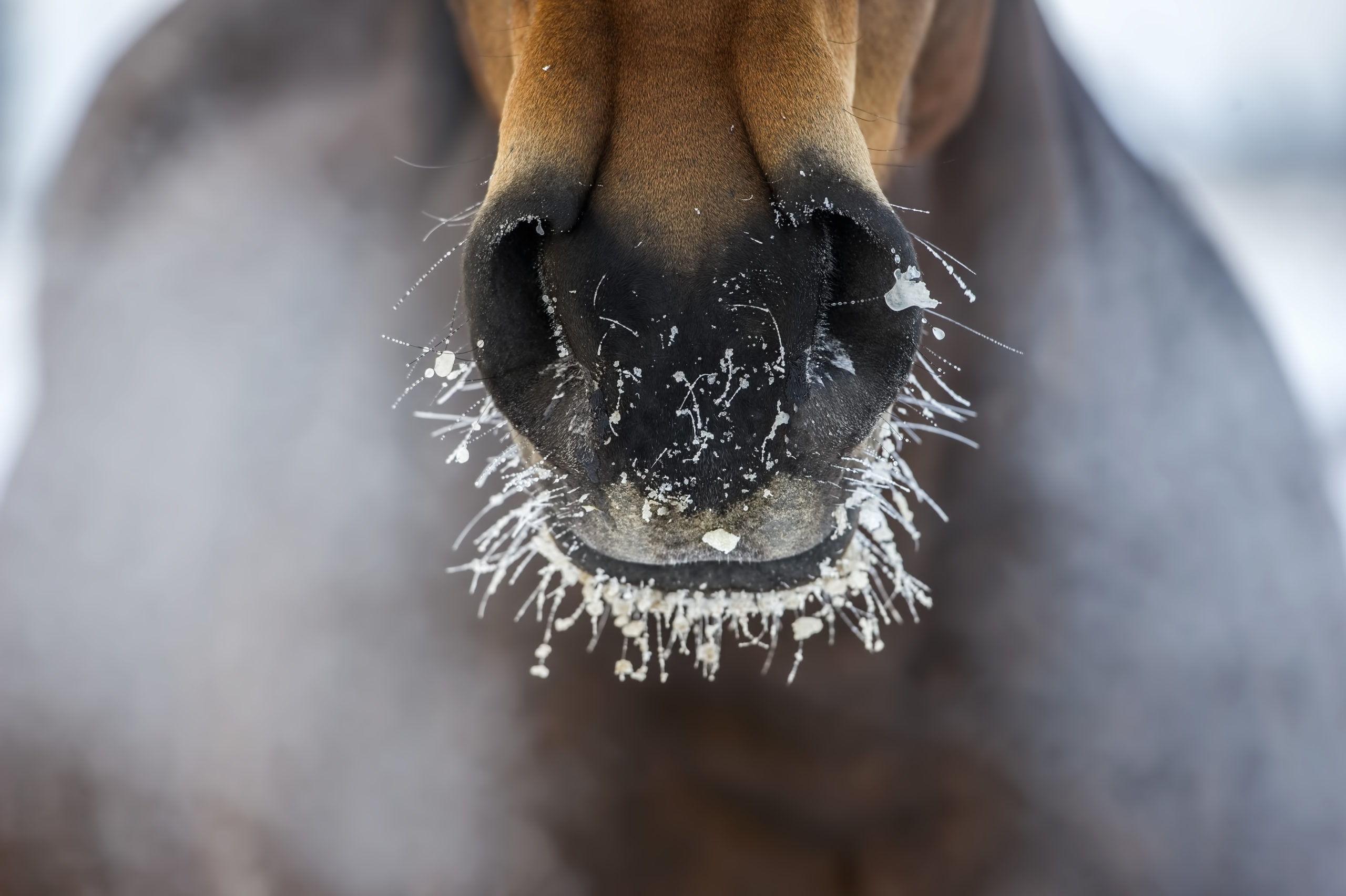Any type of colic can happen at any time of year, but when the weather turns cold the incidence of painful gastrointestinal impactions typically rises sharply. Most winter impaction colic is related to hydration—or, more accurately, mild dehydration. Horses tend to drink less when the weather is cooler, causing ingesta to become drier and more likely to become impacted. Combine that with increased consumption of hay, which is more likely to cause blockages than fresh pasture grass, and the stage is set for colic.
To protect your horse from impaction colic this winter, ensure that he always has access to fresh water. Multiple studies have attempted to identify an “ideal” temperature for water in the winter months, but there are so many variables—such as ambient temperatures—that the results are difficult to apply universally. Nonetheless, it’s a pretty good bet that ice will dissuade a horse from drinking, so do your best to keep his water from freezing—not only in a solid sheet of ice on top of the trough or bucket but also as free-floating chunks of ice.

A wide range of devices, from insulated buckets to heated automatic waterers, are available today to keep water from freezing. Make sure whatever method you choose can be safely powered by your barn’s electrical system.
Another way to prevent impaction colic during the cold months is to keep your horse moving. Movement—even just walking around a pasture—encourages gut motility. Keep your turnout schedule as consistent as you can all season. Even on cold, snowy days, turn your horse out if he has shelter and the footing is safe. If conditions make his usual turnout unsafe, look for alternatives, such as hand-walking in the indoor arena or even up and down the aisle for a half-hour at a time.
Speaking of Colic
The term “colic” is very broad, encompassing any pain in a horse’s gut, regardless of the cause. When diagnosing individual cases and devising treatments, however, veterinarians will use more specific language. Here’s a quick look at four common colic descriptions and what they mean.

In strangulating colic, the blood supply to a portion of intestine is cut off. This can happen when a section of small or large intestine shifts and becomes entrapped in an abnormal location; when a lipoma, a mass of fatty tissue suspended on a stalk, gets wrapped around the intestine; or when a section of bowel twists upon itself, like linked sausages. The strangulated section of intestine eventually dies and the horse is typically in extreme and obvious pain with elevated heart and respiratory rates.
The blood flow to the intestine isn’t compromised in nonstrangulating colics but these situations can still be serious. These include gas colics, which occur when accumulation of gas causes painful distention in the bowels, as well as enteroliths, sand accumulations and food impactions, caused when a concentrated mass of dry feed can’t pass beyond a portion of the gut. These colics tend to be less painful, or the pain is transient. Horses tend to be restless, laying down and getting up frequently and staring at their sides.
Medical colics are cases that the veterinarian suspects maybe be treatable without surgery. These treatments may include pain-killing medication and intravenous fluids. In many cases, medications and supportive care can resolve the situation quickly, but even a mild medical colic that does not improve over the course of a few hours is likely to be referred to a larger clinic.
Surgical colics are, as the name implies, those that the veterinarian suspects will require surgery to treat. Virtually all strangulating colics fall into this category as do blockages that do not resolve with medical treatment. Numerous studies have shown that the more quickly a severely colicking horse is referred to a surgical facility, the greater are his chances of survival, so don’t be surprised if your veterinarian makes this decision very quickly.





